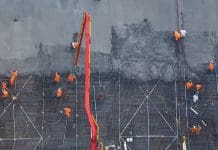The Business and Planning Bill proposed by the government to deal with the growing impact of Covid-19 on development has a number of important changes that will impact the construction industry
The UK Government proposes a number of important changes to boost economic recovery and growth in England in the new Business and Planning Bill 2020 following the pandemic.
The focus, unsurprisingly given the Prime Minister’s recent comments, seems to be on ‘Build Build Build’ with the Bill flying through Parliament. It is scheduled for a third reading on the 20 July and, once in force, the provisions are intended to introduce a range of measures to assist businesses and developers to adjust to the new ways of working as companies recover from the disruption caused by Covid-19.
What are the proposed planning reforms and how do they impact on construction?
Part 3 of the Bill deals with the planning amendments. The proposed planning reforms, a number of which directly impact on the construction industry, are listed below:
- A way for developers to modify conditions relating to construction working hours;
- Reviving planning permissions that have expired since 23 March and providing an automatic extension to the expiry of certain planning permissions ensuring planned developments are given more time to be implemented;
- Provisions allowing the Planning Inspectorate to use hybrid planning appeals in place of using only one type of procedure;
- Providing electronic inspection of the London Plan and temporary removal of the requirement for physical inspection of the London Plan or the need to provide hard copies on request.
Modification of conditions relating to construction working hours
This allows a fast track application provision for developers to apply to modify a planning condition or document approved under a condition which restricts the times of day that construction activities take place. The extension can allow longer working hours on a particular day or working on days not otherwise permitted.
The Local Planning Authority can approve, refuse or make a determination about modification to hours, proposed start or proposed end date – provided the applicant agrees to the terms. If the Local Planning Authority fails to respond within 14 days, then there is deemed approval in accordance with the application.
Extension of certain permissions and consents
To ease the disruption to the construction industry from Covid-19, the Bill introduces an automatic extension to the period of implementation of the following until 1 April 2021:
- Full planning permissions and outline planning permissions due to expire during the period beginning 28 days after the Bill passes into law, and ending on 31 December 2020 and;
- Listed building consents due to expire between 23 March 2020 and 31 December 2020.
Where outline permission for the period for submission of reserved matters expires between 23 March and 31 December 2020, an automatic extension to 1 April 2021 will also apply.
Additional Environmental Approval from the Local Planning Authority is required for planning permissions which have expired between 23 March 2020 and the date the new provisions take place. This is to ensure the Local Planning Authority is reasonably satisfied there has been no change to the likely environmental impacts of the development during this period.
There is deemed approval if the Local Authority does not make a decision within a 28-day period. Qualifying permissions are granted an extension to 1 April 2020.
Provisions relating to the holding of hybrid appeals
Currently, English law requires planning appeals to be determined either by written representations, hearings or inquiries. The proposed changes in the Bill allow flexibility for Inspectors to simultaneously use more than one procedure with the hope of speeding up the planning appeal process.
The use of hybrid appeals going forward is a permanent amendment and applies to all standard planning and enforcement appeals, listed building consent appeals and hazardous substance appeals. The new legislation brings English law in line with Welsh law.
Electronic inspection of the London Plan
The London Plan must be available for electronic inspection in a reasonably convenient way. However, the Greater London Authority is ‘also strongly encouraged to supplement this to increase access by making using of electronic methods to their full potential.’
These new powers will be received with open arms by developers. It will allow them to kick start schemes that have been hit by the impact of the Covid-19 lockdown. The secretary of state can, of course, use his powers to extend the temporary measures should the pandemic remain problematic next year.
Our planning and construction teams are advising on all types of enquiries including those about the new Business and Planning Bill 2020. If you have any planning or construction queries, please get in touch and we’ll be happy to advise you.
Andrew Piatt
Partner & national head of planning
Gateley Legal
Twitter: @GateleyGroup















Is there a scheduled date for Royal Assent?
Hi David, I cannot see a date for the Royal Assent, but I did find this timeline https://services.parliament.uk/bills/2019-21/businessandplanning.html